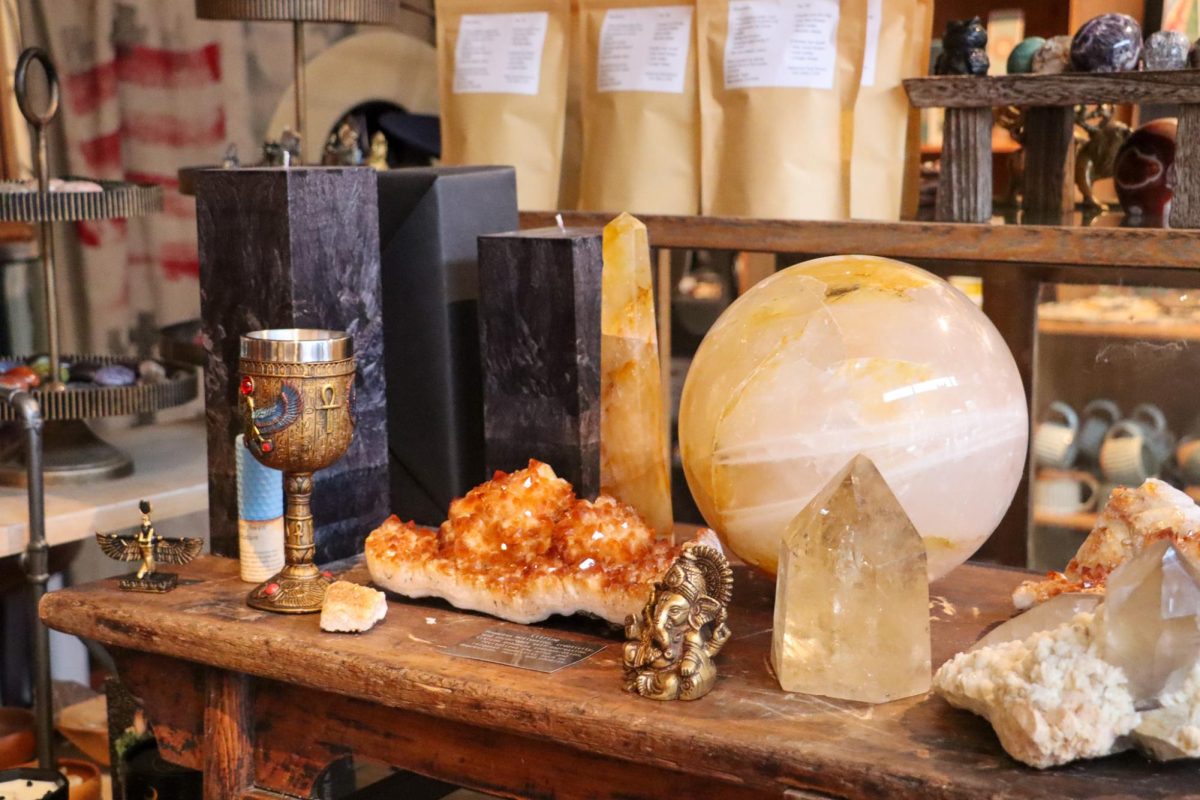Colombian American singer Kali Uchis released her fourth studio album, Orquídeas (Orchids), Jan. 12. Orquídeas, her second album in Spanish, plays on the beauty of the national flower of Colombia and her deep connections to her Latin roots. The 14 tracks begin with soft-spoken, ethereal vocals backed by synthesizers and drums, and ends with self-confident anthems.
Uchis is known for her mix of R&B, ‘90s Latin, and electronic music. She’s made a name for herself both in English and Spanish-speaking audiences, attracting new listeners with her irresistible melodies. Her song, “Telepatía,” released in 2020 as a part of the album Sin Miedo (del Amor y Otros Demonios), brought Uchis her first number-one billboard hit on the Billboard Hot Latin Songs chart. She continues to uphold “Telepatías’” popular, otherworldly vibe in Orquídeas while adding a new sense of self-confidence, strengthening her new album.
Songs like “Te Mata” and “¿Cómo Así?” reflect two aspects of personal transformation. In “Te Mata,” Uchis sings “por fin estoy feliz, mis días ya no son gris,” (“I’m finally happy, my days are no longer gray”), describing the growth after leaving a toxic relationship. In “¿Cómo Así?” Uchis repeats the line, “‘Cause if you come around here, you’ll never wanna leave.” This line along with the rest of the song’s lyrics describes the priceless value of her love and how she’s fully aware of what she deserves in relationships. Her depiction of self-worth and independence runs throughout her album, creating passionate verses in every song. However, Uchis invites multiple other artists to her album as well.
“Igual Que un Angel,” with famous Mexican artist Peso Pluma, currently ranks 23rd on the Billboard Top 100. Uchis ingeniously intertwines her delicate voice with Latin artist collaborations throughout her album. Pluma (in “Igual Que en Angel”) and El Alfa (in “Muñekita”) provide her songs with contrasting vocals, as they both are known for their raspy, harsh voices. This contrast breaks up her album perfectly, leaving listeners with catchy lines and verses from their other favorite artists. Uchis also invites Puerto Rican artist Rauw Alejandro into her song, “No Hay Le Parte 2.” Alejandro’s style of airy, electronic reggaeton blends beautifully with Uchis’ harmonies and vocal layering, making “No Hay Le Parte 2” stand out among the other tracks.
One collaboration, released ahead of the album in 2023, continues the recent friendship between Uchis and Colombian artist Karol G. Their song, “Lábios Mordidos,” is an anthem for self-confidence. Their use of repetitive vocals above a classic dembow beat breeds the perfect dance floor song. Although released prior to the rest of the tracks, “Lábios Mordidos” continues to be one of the brighter stars of the album. By combining two iconic Latin female artists who are both making names for themselves on the international stage, this collaboration reigns supreme.
By the end of her album, Uchis transitions from slower, more delicate tracks to upbeat, dance-inducing rhythms. “Te Mata” and “Dame Beso // Muévete” will leave listeners belting her lyrics while dancing traditional Latin styles such as bolero and merengue.
Orquídeas came just in time for the New Year, providing listeners with 44 minutes of confidence delivered in nonchalant, versatile tracks. Uchis continues to evolve the genre of R&B, furthering the popularity of Spanish songs and albums in English-dominated music styles. These 14 tracks can be played on repeat, in any order, all day long, leaving Orquídeas with five out of five feathers.















